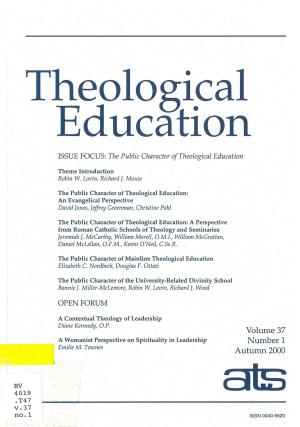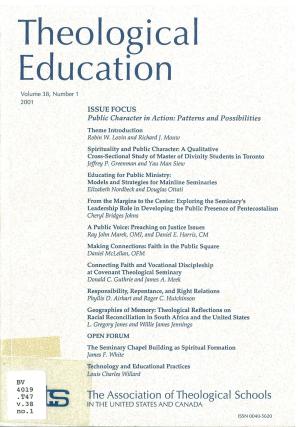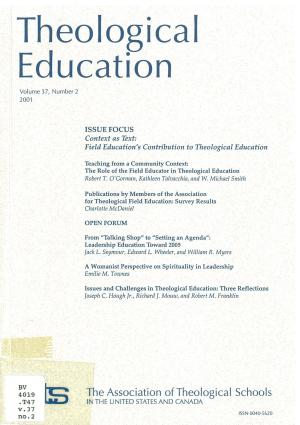Resources

Journal Issue. Full text is available online.

A study of the work which theological schools do in the preparation of persons for the parish ministry. (From the Publisher)

Journal Issue. Full text is available online.

Journal Issue. Full text is available online.

Calling for accountability, Practice What You Preach discusses ethical questions that arise in congregations and pastoral leadership. Formation of pastors, empowering leaders, resolving power struggles between clergy and laity--these and other critical pastoral issues are addressed by an ecumenical group of contributors. Divided into four parts: the way the churches train their pastors; the way their pastors live; the way communities worship; and the way communities behave, this collection identifies and offers positive solutions to areas where churches are often slow to change. Each essay begins with a case describing a typical problem--from wages to in-fighting--and then discusses what virtues or character traits might be developed to resolve the problem effectively. An eye-opener of a book . . . it will involve you from page one as it invites intelligent people everywhere to reckon with its courageous, timely content. (From the Publisher)


A leading MIT social scientist and consultant examines five professions—engineering, architecture, management, psychotherapy, and town planning—to show how professionals really go about solving problems. (From the Publisher)

Drawing upon 17 years of experience in theology, Dr. Kinast describes a step-by-step approach to help students and experienced ministers learn what their ministers teaches. Through examples, practical suggestions, and principles grounded in process theology, readers of this book explore the full range of resources needed for meaningful theological reflection. (From the Publisher)
Stresses that the knowledge and the love of God should be central to theological education. Information on the program of spiritual formation developed by Duke Divinity School; How the program works.
In this article, I take Anderson and Scanlon's observation about clergy malaise and pastoral vulnerability as the starting point for my own reflection on supervision and formation in the context of theological education and ministerial formation. Using a number of insights derived from the recent work of Robert Kegan, In Over Our Heads: The Mental Demands of Modern Life, I offer an alternative attribution theory for understanding clergy malaise and go on to explore the implications of this theory for those of us involved in theological education and the formation of candidates for ministry. In accord with Anderson and Scanlon, I agree that clergy malaise is a symptom of a heightened sense of vulnerability. I am somewhat hesitant, however, to identify the cause of such vulnerability as an inadequate formation for ministry. Thought I readily acknowledge that an inadequate formation may exacerbate the phenomenon, I believe Kegan's analysis alerts us to a more probable cause, namely: the limited capacity of the individual minister to meet the mental demands of modern life.